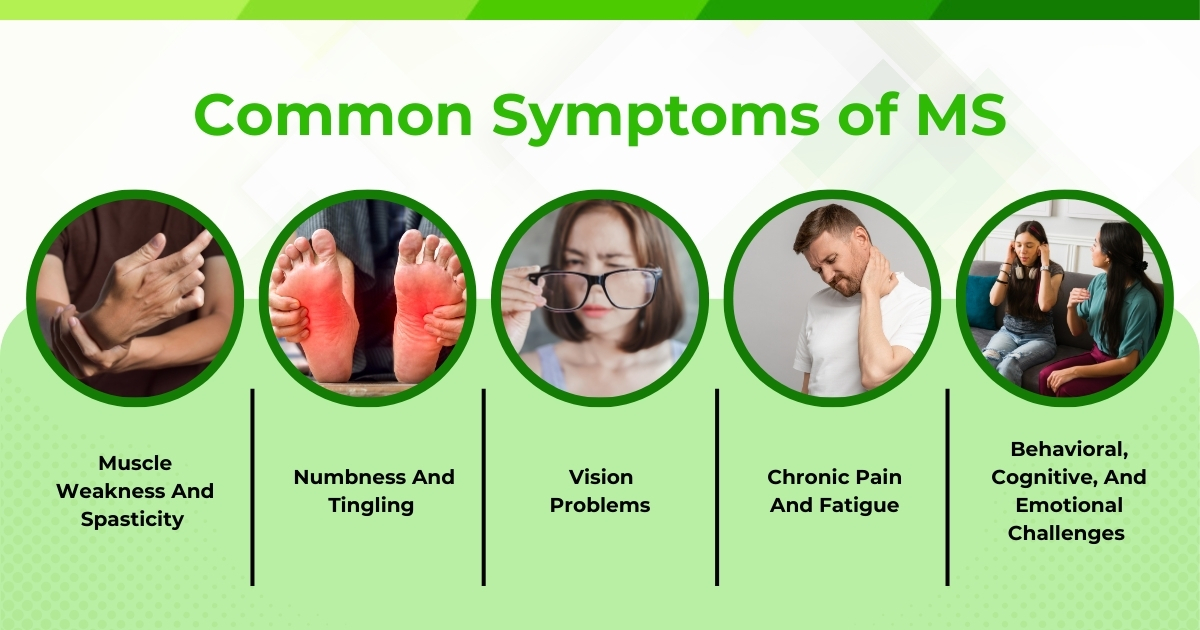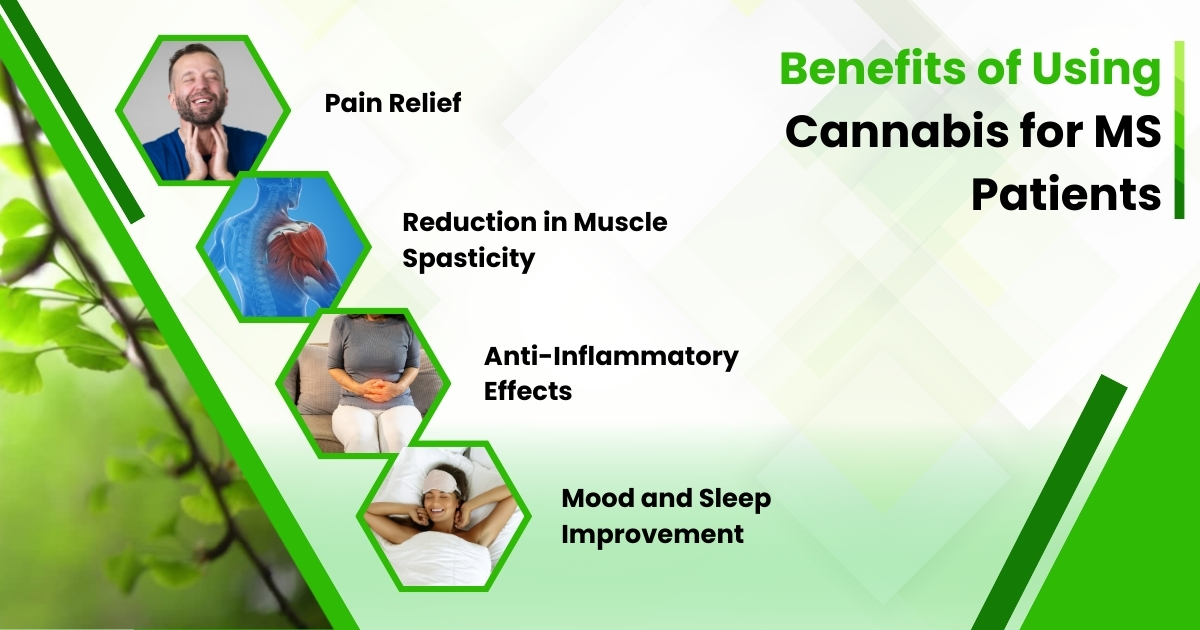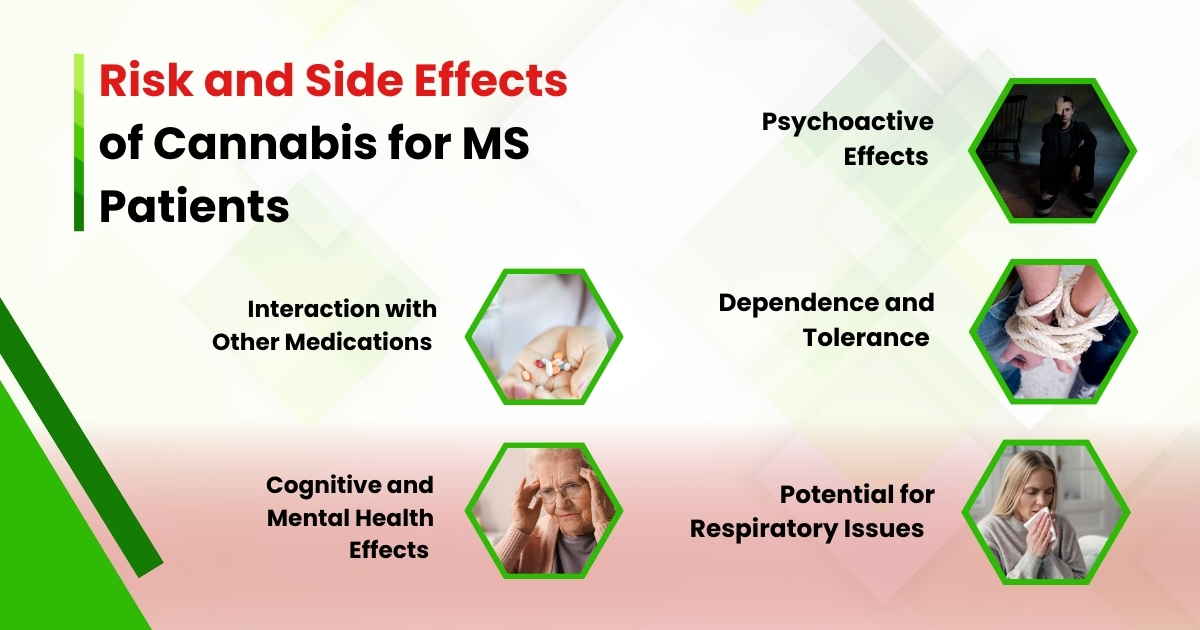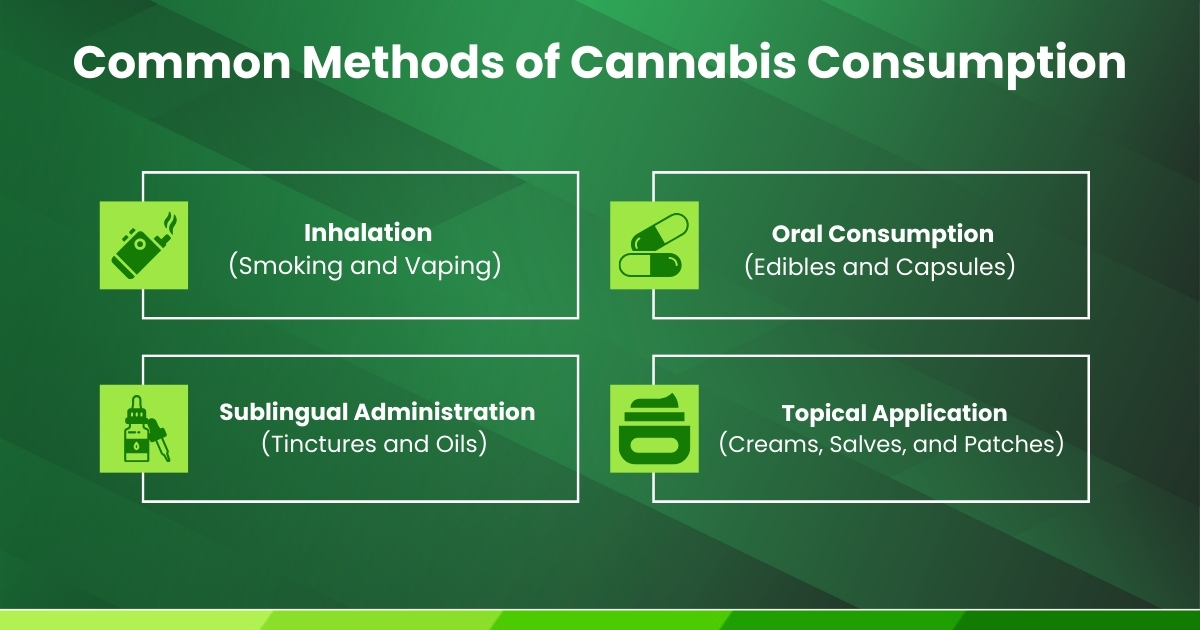Could Cannabis Offer Relief for Multiple Sclerosis Patients?- All You Need to Know

Thousands of Australians suffer from Multiple Sclerosis (MS), a debilitating and complex condition that affects the nerves and causes mild discomfort to severe disability. Traditional treatment methods have been used to provide varying degrees of relief to patients; however, many more and more people are increasingly seeking alternative methods to manage their symptoms.
Medical cannabis is a novel avenue gaining attention as it offers new hope for those dealing with chronic pain, muscle spasticity, and fatigue.
In today’s blog, let’s explore how medical cannabis can be used for multiple sclerosis treatment and how cannabis can help with multiple sclerosis pain management.
Understanding Multiple Sclerosis (MS)
Multiple Sclerosis is a complex and often unpredictable neurological disorder that affects the brain and spinal cord. The disease disrupts information flow between the brain and the body, leading to a variety of symptoms.

Common Symptoms of MS
- Muscle Weakness And Spasticity
- Numbness And Tingling
- Vision Problems
- Chronic Pain And Fatigue
- Behavioral, Cognitive, And Emotional Challenges
Is Multiple Sclerosis a Hereditary Disease?
There’s no clear answer to this question, and researchers believe that MS is not directly passed from parent to child like some genetic disorders. However, having a close relative with MS can slightly increase the risk of developing it.
MS is caused by a combination of genetics and environmental factors.
Right now, there are no clear treatment paths to cure MS, and patients with MS are often prescribed medicines to treat and manage their symptoms and not the underlying disease.
Medicinal Cannabis as an Alternative Treatment for Multiple Sclerosis
Australians have found a new way to manage multiple Sclerosis by using traditional treatment methods along with medicinal cannabis for multiple sclerosis treatments. In patients where traditional treatments don’t work or for those who are in search of additional relief, medical cannabis is becoming increasingly popular due to its ability to improve a user’s quality of life.
The Role of the Endocannabinoid System in MS
The endocannabinoid system (ECS) plays a significant role in regulating various physiological processes, including pain sensation, immune function, and inflammation. Medical cannabis works by interacting with ECS to modulate immune activity, reduce inflammation, and potentially protect nerve cells from further damage.
Scientific Research on Cannabis for Multiple Sclerosis Treatment
Multiple sclerosis pain management with cannabis is still being studied for the treatment of MS, but preliminary results are quite promising. It has been shown to reduce pain and muscle spasms, offer neuroprotection and remarkably improve quality of life.
Benefits of Using Cannabis for MS Patients
Medicinal cannabis can be used in conjunction with traditional therapies to treat a wide range of symptoms, as it offers a range of benefits that other treatments fail to deliver.

Pain Relief
Standard painkillers often fail to relieve neuropathic pain caused by MS, but THC has emerged as a new alternative.
Reduction in Muscle Spasticity
Muscle stiffness and spasms are some of the most challenging symptoms of MS, and THC has been shown to help reduce muscle rigidity and improve mobility in patients.
Anti-Inflammatory Effects
CBD and THC both have anti-inflammatory properties, which address some of the underlying immune processes involved in MS.
Mood and Sleep Improvement
MS patients report mood disorders and sleep disturbances, which are often exacerbated by chronic pain. Medical cannabis helps improve sleep quality and reduce anxiety.
Risks and Side Effects of Cannabis for MS Patients
The benefits of cannabis are also accompanied by potential risks and side effects, and understanding them is crucial for making informed decisions about using cannabis for multiple sclerosis treatments.

Psychoactive Effects
THC produces a “high” that can impair cognitive function, coordination, and reaction time, which can be a concern for MS patients already dealing with cognitive and motor issues.
Dependence and Tolerance
Regular cannabis use leads to tolerance and dependence, especially with high-THC products. This could lead to increased usage over time and potential withdrawal symptoms if a patient stops treatment with CBD for Multiple Sclerosis.
Potential for Respiratory Issues
When smoked or vaporised, cannabis irritates the respiratory system, which is not ideal for individuals with compromised immune health.
Interaction with Other Medications
Cannabis interacts with various medications, including those used in MS treatment, so speak to your doctor before you start any new routine.
Cognitive and Mental Health Effects
Cannabis use can exacerbate anxiety or trigger paranoia, especially in high doses or in those predisposed to mental health issues. MS patients who already experience cognitive difficulties may be particularly sensitive to these effects.
Legal Status and Availability
Cannabis is not legal in all Australian states and territories. Currently, the Therapeutic Goods Administration (TGA) has approved only one cannabis-derived medication, Epidyolex, for treating certain types of epilepsy. The TGA has also approved some synthetic cannabis products, but not for managing multiple sclerosis (MS). Further research is needed to establish the safety and effectiveness of cannabis extracts before they can be approved for MS treatment in Australia.
Individuals should consult with their healthcare provider to determine whether medicinal cannabis is legal and appropriate for their condition and to understand how to access suitable products through authorised channels.
Common Methods of Cannabis Consumption for MS Patients

Inhalation (Smoking and Vaping)
Smoking involves burning dried cannabis flowers, whereas vaping heats the flower or concentrates without combustion, resulting in rapid relief.
Oral Consumption (Edibles and Capsules)
Edibles and capsules are cannabis-infused food products or pills that are ingested and metabolised through the digestive system.
Sublingual Administration (Tinctures and Oils)
Tinctures and oils are placed under the tongue and absorbed through mucous membranes, leading to a faster onset than edibles but slower than inhalation.
Topical Application (Creams, Salves, and Patches)
Creams, patches, and other topical products are applied directly to the skin, allowing cannabinoids to interact with localised receptors without entering the bloodstream.
Embracing Change: How Cannabis Could Shape the Future of MS Therapy
Medical cannabis offers a ray of hope for MS patients struggling with conventional treatments as various studies and anecdotal evidence suggest, using medical cannabis to treat multiple Sclerosis has a very promising future. From pain relief to reduced muscle spasticity, cannabis shows promise in improving quality of life.
The journey of MS is challenging, but with emerging therapies like cannabis, patients have new weapons in their arsenal. As researchers explore the full therapeutic potential of cannabinoids, we’ll see more and more medications use medical cannabis for the treatment of various diseases, including MS.
If you or a loved one is suffering from MS and wants to consider medical cannabis as a viable multiple sclerosis treatment, then please speak to our qualified staff, who can help you get a prescription for medical marijuana and book your appointment today.








